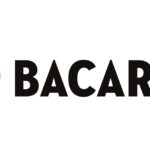Search engine optimization (SEO) is key for businesses wanting to be seen online. It helps bring more people to their websites. Knowing SEO well is important, whether you’re already in the field or want to be.
This guide has 60 important SEO interview questions and answers. It helps you show off your skills and impress employers. You’ll learn from the basics to advanced SEO tactics. This will make you ready for your next SEO job interview.

Key Takeaways
- Gain in-depth understanding of the three pillars of SEO: on-page, off-page, and technical optimization
- Explore effective strategies for keyword research, content optimization, and link building
- Discover best practices for improving website architecture, site speed, and mobile optimization
- Understand the importance of measuring and analyzing SEO performance through key metrics
- Prepare for a wide range of SEO-related questions to ace your next job interview
Understanding the Fundamentals of SEO
SEO, or search engine optimization, makes your website more visible online. It’s key for any digital marketing plan. It boosts your website’s traffic and success.
What is SEO and Why is it Important?
SEO is vital because it helps people find your website when they search for things you offer. By optimizing your site, you make it easier for users to find and use your content.
The Three Pillars of SEO: On-Page, Off-Page, and Technical
The three main parts of search engine optimization are:
- On-Page SEO: This is about making your website’s content and structure better for search engines.
- Off-Page SEO: This is about getting good backlinks and building your website’s authority through social media and guest posts.
- Technical SEO: This deals with your website’s technical side, like speed and mobile-friendliness, to help search engines understand it better.
Knowing and using seo best practices in these areas can greatly improve your website’s search engine optimization. This brings more people to your site who are likely to be interested in what you offer.
60 seo interview question and answers
Getting ready for an SEO interview can feel overwhelming. But with the right knowledge, you can show off your skills and get the job you want. This guide will cover 60 common SEO interview questions. It will give you the tools to ace your next interview.
This guide will take you from SEO basics to advanced techniques. It’s for both newbies and seasoned pros. You’ll learn how to show you’re a true SEO expert.
- What is SEO, and why is it important?
- Explain the three pillars of SEO: on-page, off-page, and technical.
- How do you conduct keyword research, and why is it crucial for SEO?
- What are the best practices for content optimization?
- Discuss the various off-page SEO techniques and their impact.
- Explain the different types of backlinks and their importance in SEO.
- What is the difference between white hat and black hat link building strategies?
- How would you optimize a website’s architecture and navigation for improved search engine visibility?
- What are the key considerations for site speed and performance optimization?
- Describe your approach to local SEO and how it differs from general SEO strategies.
These are just a few examples from the 60 seo interview question and answers in this guide. Mastering these topics will help you impress your interviewers. You’ll show you really get SEO.
The secret to acing an SEO interview is more than just knowing the tech. You need to show you can solve problems, think strategically, and adapt to changes. With this guide, you’ll be ready to tackle the 60 seo interview question and answers. And you’ll be on your way to your dream SEO job.
On-Page SEO Strategies
Good on-page SEO helps your website show up better in search results. It focuses on keyword research and content optimization. These strategies make your website easier to find and more relevant, bringing in more visitors and potential customers.
Keyword Research and Optimization
Keyword research finds out what people are searching for. Knowing what your customers look for lets you make your content match their needs. This means:
- Doing deep keyword research to find the best keywords for your business.
- Looking at search volume, competition, and relevance to pick the best keywords.
- Putting these keywords in your page titles, headings, meta descriptions, and content.
Content Optimization for Search Engines
After finding the right keywords, you need to make your content great for both search engines and readers. This includes:
- Writing engaging, useful, and optimized content that readers will enjoy.
- Organizing your content with clear headings and sections to make it easy to read and on-page SEO friendly.
- Optimizing images, videos, and other media with relevant alt text and file names.
- Making sure your web pages are fast and work well on mobile devices for a better user experience and content optimization.
By doing thorough keyword research and careful content optimization, you can boost your website’s on-page SEO. This will help bring in more visitors from search engines. It’s a key step towards your SEO success.
Off-Page SEO Techniques
Off-page SEO is key in making your website more visible and trusted. It’s different from on-page SEO, which focuses on your website’s content and structure. Off-page SEO is about building a strong online presence and getting quality backlinks.
Good off-page SEO can make your website more authoritative and trustworthy. This can lead to better search engine rankings and more visitors. Learning and using these strategies can boost your SEO efforts.
Link Building and Backlink Strategies
Link building is at the core of off-page SEO. It’s about getting backlinks from other trusted websites. These backlinks tell search engines your content is valuable and should rank well. Using white hat link building methods is important for your website’s off-page SEO.
- Guest posting on relevant blogs and websites
- Working with influencers and brands
- Submitting to directories and citations
- Using broken link building
- Getting social media engagement and shares
The quality and relevance of your backlinks matter more than how many you have. Aim for a mix of high-authority, relevant backlinks to boost your off-page SEO.
Social Media and Online Presence
Having a strong social media presence helps your off-page SEO too. Being active in online communities, sharing good content, and connecting with influencers can increase your brand’s visibility. It also brings more people to your website.
- Make your social media profiles easy to find
- Join and participate in online forums
- Use user-generated content and reviews
- Work with influencers and thought leaders
- Get people to share your content
Off-page SEO is a continuous effort that needs a solid plan. By focusing on these strategies, you can make your website more authoritative. This can improve your search engine ranking and bring in more quality leads and sales.
Link Building and Backlink Strategies
In the world of SEO, link building is key. It helps your website be seen more and be trusted. Backlinks from other sites are important to search engines. Good link building can make your site more popular and bring in more visitors.
Types of Backlinks and Their Importance
There are many types of backlinks, each affecting your SEO differently. Here are a few:
- Editorial links – These come from other sites linking to your quality content.
- Guest post links – You get these by writing for other blogs and sites.
- Broken link building – Replacing broken links with your own content on other sites.
- Outreach links – These are from sites you’ve reached out to and built relationships with.
The quality of your backlinks matters a lot. Search engines like sites with many good backlinks. It shows your content is worth sharing and trustworthy.
White Hat vs. Black Hat Link Building
Link building has two main ways: white hat and black hat. White hat SEO is about doing things right and following the rules. It means making great content and asking for links in a real way. Black hat tactics, like buying links or spamming, are bad and can hurt your site.
For your site to do well, stick to white hat link building and backlink strategies. Make great content and build real connections with other sites. This will help your site get seen more and rank better in search results.
Technical SEO Best Practices
Improving your website’s technical parts is key for lasting success in search engines. We’ll explore the best ways for website architecture, navigation, and site speed optimization. These are the basics of good technical SEO.
Website Architecture and Navigation
A well-organized website is vital for both search engines and users. Make sure your site’s structure is clear and easy to follow. Use logical URLs and links to help visitors and search bots find their way.
Also, focus on your XML sitemap and robots.txt file. These help search engines find and index your content better. This leads to better visibility online.
Site Speed and Performance Optimization
- Optimize image and media files to reduce load times without compromising quality.
- Implement caching mechanisms to minimize server response times.
- Leverage content delivery networks (CDNs) to serve assets from locations closer to your users.
- Minimize the use of third-party scripts and plugins that can slow down your site.
- Regularly audit and address any technical issues that may impact your website’s performance.
By following these technical SEO tips, your website will be better structured, easy to use, and more visible to search engines. This approach will help your SEO succeed in the long run.

Advanced SEO Tactics
Local SEO and Local Search Optimization
In the world of digital marketing, SEO tactics are key to beating the competition. Local SEO and local search optimization focus on being seen by people in your area. They help you show up in search results for local searches.
For small and medium-sized businesses, local SEO is vital. It helps you reach local customers. This can lead to more people visiting your store, buying from you, and growing your business.
- Claim and optimize your Google My Business listing to show your business info, hours, and location.
- Make sure your website works well on mobile devices and loads fast for a good user experience.
- Use local keywords and geo-targeting in your content to match local searches better.
- Get a strong backlink profile with local citations and listings on relevant websites.
- Ask for customer reviews and ratings to improve your local search visibility and trustworthiness.
Using these advanced SEO tactics can help you tap into local search optimization. This way, you can connect with your audience better. Stay ahead and use local SEO to grow your business.
SEO for E-Commerce Websites
E-commerce websites have special SEO challenges. They deal with lots of products, complex navigation, and need to make both category and product pages easy to find. Learning ecommerce seo is key to getting more visitors, making more sales, and beating your rivals online.
To make your e-commerce site rank well in search results, try these tips:
- Product Page Optimization: Use specific keywords, interesting descriptions, and great images on each product page. This makes them more appealing to search engines.
- Category Page Optimization: Make category pages useful with relevant, detailed content. This helps search engines understand your store’s layout.
- Site Architecture and Navigation: Make your site easy to navigate. This helps both customers and search engines find what they need.
- Leveraging Schema Markup: Add structured data markup to your pages. This gives search engines more info about your products, helping you show up more in search results.
- Mobile-Friendly Design: Make sure your site works well on mobile devices. More and more people shop online using their phones and tablets.
By following these ecommerce seo tips, you can make your online store more visible and successful. This means more visitors, more leads, and more sales.

Mobile SEO and Responsive Design
In today’s world, mobile devices are how we search and get info. Making your website mobile-friendly is key for success. Mobile SEO and responsive design help your content be found easily and work well on mobile.
Optimizing for Mobile Search and User Experience
To do well in mobile search optimization, focus on a few important things:
- Use a responsive design that changes your site’s look and feel for different screen sizes. This makes sure your site works well on all devices.
- Make your website fast for mobile users. Quick-loading sites keep people interested and lower bounce rates.
- Make your content easy to read on mobile. Use short paragraphs, big fonts, and easy-to-click buttons.
- Make sure your site’s navigation and layout are simple on small screens.
By working on these mobile SEO points, you can make your site a hit in the mobile world. You’ll give your visitors a smooth, fun experience, no matter how they find your site.
Measuring and Analyzing SEO Performance
Good SEO means always checking how you’re doing. By watching important seo metrics, you learn a lot about your site. This helps you make smart choices to boost your seo reporting and seo analytics.
Key SEO Metrics to Track
- Organic Traffic: The number of visitors coming to your site through search engine results.
- Keyword Rankings: Your website’s position in search engine results for specific keywords and phrases.
- Conversion Rate: The percentage of visitors who take a desired action, such as making a purchase or submitting a form.
- Bounce Rate: The percentage of visitors who leave your site after viewing only one page.
- Time on Site: The average amount of time visitors spend on your website.
- Backlinks: The number and quality of external websites linking to your content.
Watching these seo metrics closely helps you find what to fix. You can then make your site better and see how your SEO work pays off. Keeping up with seo reporting and analysis keeps you ahead and helps your business grow.
Conclusion
Mastering SEO interview questions is key for a digital marketing career. This guide has covered the basics and advanced tactics. It shows what employers look for in SEO pros.
Learning SEO is a never-ending journey. The digital world changes fast. Keep up with trends, algorithms, and best practices.
Review industry news, go to SEO events, and try new things. This will make you better at SEO. It will also make you valuable in the job market.
Use what you learned from this guide to show your skills in SEO. Keep learning and let your love for digital marketing take you far.
FAQ
What is SEO and why is it important?
SEO stands for Search Engine Optimization. It makes your website more visible in search results. This can bring more people to your site, helping your business grow.
What are the three pillars of SEO?
SEO has three main parts. On-page optimization makes your site better. Off-page optimization builds your site’s authority. Technical SEO makes sure search engines can find your site easily.
What is keyword research and why is it important?
Keyword research finds out what people search for online. It’s key because it helps you make content that matches what people want. This can help your site rank higher in search results.
What is the difference between white hat and black hat SEO?
White hat SEO is good and follows Google’s rules. It includes making great content and getting natural backlinks. Black hat SEO is bad and can get your site in trouble. It uses tricks to cheat the system.
What are the key factors that influence website speed and performance?
Website speed is important. Image sizes, CSS and JavaScript files, server speed, and caching all matter. A fast site is better for users and search engines.
What is local SEO, and why is it important for businesses?
Local SEO helps your site show up in local searches. It’s key for businesses because it brings in local customers. This can lead to more sales and brand awareness.
How can you measure and analyze SEO performance?
You can track SEO with metrics like traffic, rankings, and bounce rates. Tools like Google Analytics help you understand this data. This lets you improve your SEO strategies.










